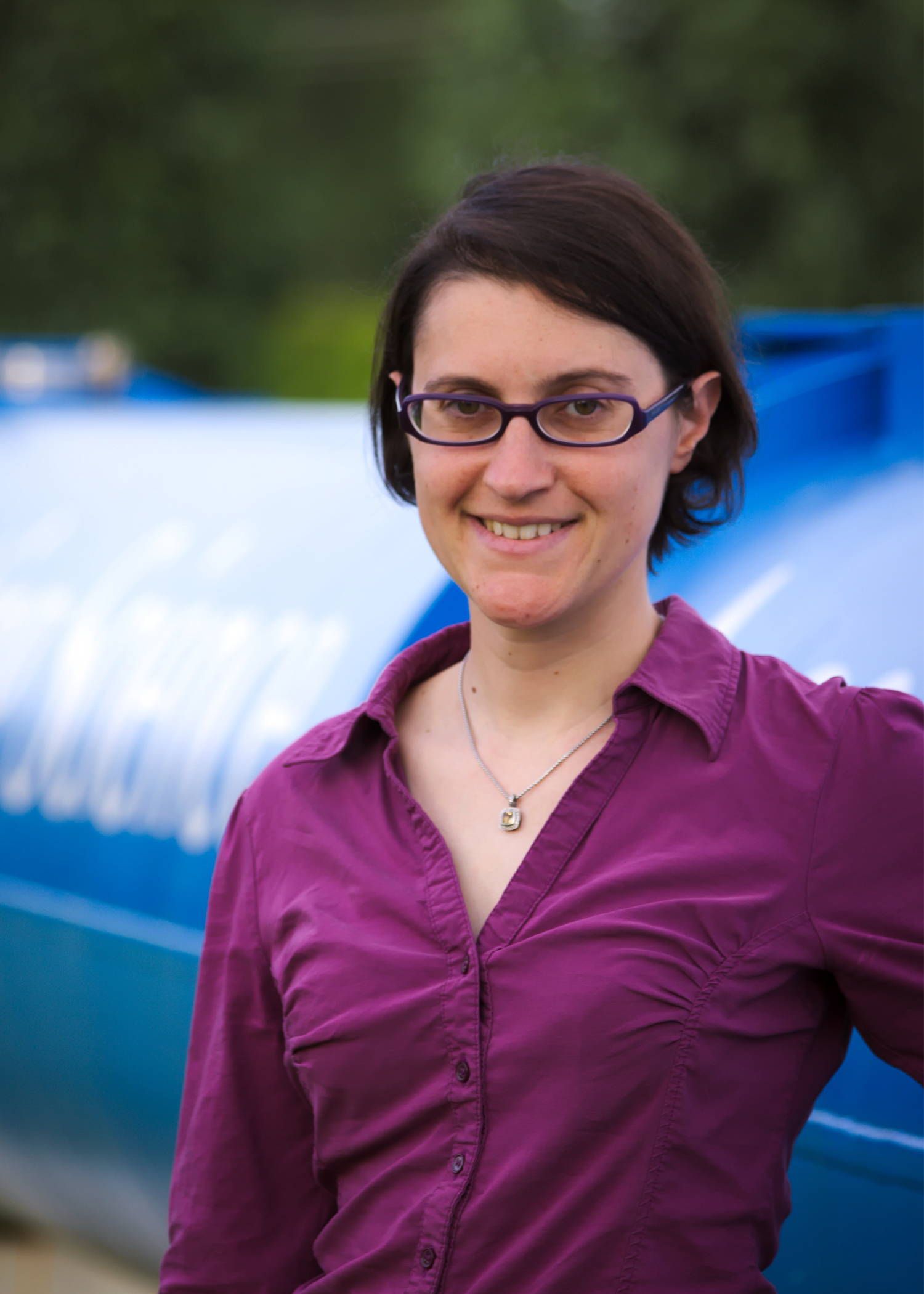Physicist Rachel Yohay receives Department of Energy early-career award worth $750,000

The Standard Model of particle physics may explain how the basic building blocks of matter interact, but there are still many open-ended questions that it does not have an answer for. Notably, the theory fails to account for the presence of dark matter, a hypothetical form of matter that is believed to comprise 26.8 percent of the universe, yet has never been directly observed.
Working to solve the dark matter mystery is the goal of high-energy physicist Rachel Yohay. Yohay, an assistant professor in Florida State University’s Department of Physics, will now have some help in that endeavor from the U.S. Department of Energy, whose Office of Science just awarded her one of 84 Early Career Research Program awards given out this year. The five-year award, valued at $750,000, will cover her summer salary and research expenses.
In conducting her research, Yohay uses data from the Compact Muon Solenoid (CMS) detector at the Large Hadron Collider (LHC), located near Geneva, Switzerland, to look for possible lighter siblings of the Higgs boson, an elementary particle in the Standard Model. Such particles might provide clues to both the nature of the Higgs mass mechanism and the dark matter puzzle.
Speaking in the language of high-energy physics, Yohay says she will use data collected by the CMS experiment to search for “boosted signatures of tau leptons decaying from a new light boson, or a light particle that follows Bose-Einstein statistics. The data will then be filtered and cleaned at computer farms located at CERN (the European Organization for Nuclear Research), then sorted into logical, manageable datasets and shipped to participating computing centers around the world.”

Yohay says she looks forward to her work contributing to the body of knowledge that the CMS detector is directly responsible for.
“It feels like a real vote of confidence from the funding agency and from my peers — both in the potential for my research to further our understanding of elementary particle dynamics and in my personal ability to see the program through to fruition,” she said of the Early Career Award.
Horst Wahl, chair of the Department of Physics, says that the department considers itself fortunate to have Yohay. He points out that the award selectivity in the High Energy Physics subprogram of the Department of Energy has been around 7 percent of applicants in recent years.
“She is one of the movers and shakers in the very ambitious program to upgrade the CMS detector, so as to make it able to function in the more challenging environment after the upgrade of the CERN LHC accelerator which is expected to be accomplished by 2023-2024,” Wahl said. “For her to get the highly prestigious Department of Energy Office of Science Early Career Research Program award is just another, albeit significant, confirmation that her excellence and potential as a future star researcher in her field is being recognized by the community and the funding agencies. We are extremely happy to have her as a colleague in our department, and I am looking forward to the many great things that she will accomplish in the future.”
The Department of Energy’s Early Career Research Program is designed to boost the nation’s scientific workforce by “providing support to exceptional researchers during the crucial early career years, when many scientists do their most formative work,” according to the program’s website.
After earning her Ph.D. in experimental particle physics from the University of Virginia in 2012, Yohay spent the next four years as a postdoctoral researcher at the University of California, Davis. She joined the faculty of FSU’s Department of Physics in 2016.
While at FSU, she has co-authored about 60 papers in refereed journals, 10 of which as one of the principal authors. In 2017, she gave four invited talks at international conferences in Europe and the United States.
Gabriella Paez is a senior English major, with a concentration in editing, writing, and media.

